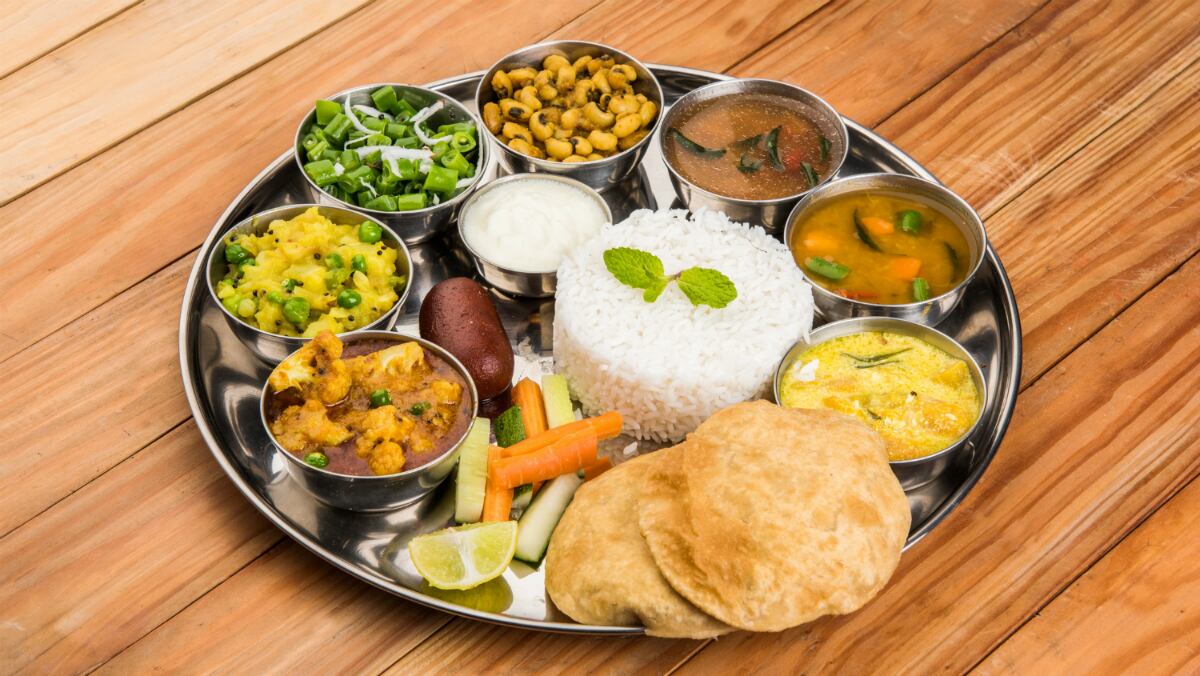Thali involves dishes that are rich in fibre and different phytochemicals from a variety of plant foods in different colours, which indicate the presence of bioactive compounds such as orange (carotenes), yellow (lutein and zeaxanthin), and red / pink (lycopene).
It is said to be able to help restore gut bacteria diversity and potentially prevent or even reverse chronic diseases such as type 2 diabetes.
Based on this, researchers from Pennsylvania State University, the University of California San Diego, Harvard University and several hospitals and cancer institutes investigated the potential benefits.
Gut bacterial diversity
Thali may be able to help restore gut bacterial diversity via anthocyanins. Anthocyanins are not absorbed into the bloodstream in the small intestine and therefore, remain in the gastrointestinal tract until they reach the colon, where they can influence the colonic microbiota in a number of ways.
Firstly, their antioxidant properties can lower inflammation-induced oxidative stress on gut bacteria.
Anthocyanins are also a potential source of carbon, which can be metabolised by bacteria, leading to higher growth of certain microbes. This bacterial metabolism produces a variety of metabolite by-products, some of which exhibit antimicrobial effects on enteric pathogen species such as E. coli.
Inflammation-induced chronic diseases
Low-fibre, high-calorie diets common in the West have been said to either directly induce inflammation, or indirectly do so through gut dysbiosis, thereby increasing the risk of chronic disease.
Low-grade inflammation also allows bacteria like E. coli to thrive, thanks to the intestinal mucus layer thinning and facilitating more direct contact between cells and intestinal bacteria.
Thali, the researchers reported, could combat this cycle in two ways: "by suppressing bacterial growth with anti-microbial phytochemicals (for example, curcumin), and by reducing the opportunity for inflammation to occur".
Bioactive compounds in the dished may also help to reduce the amount of reactive oxygen species (ROS) through their antioxidant activity, thereby also lowering inflammation.
Plant varieties for better health
The researchers wrote that recent studies had provided pre-clinical evidence that phytochemicals — particularly anthocyanins — promoted gut microbial health, reduced inflammation, and lowered colorectal cancer risk.
Despite scant clinical evidence, anthocyanins and other bioactive compounds were reported to have had an impact on colon cancer.
This is consistent with the relatively low cancer rates in India, where traditional diets and ayurvedic medicine encourage the intake of a wide range of phytochemicals.
In conclusion, they wrote: "Long-term, diet-based randomised clinical trials are both difficult to conduct and prohibitively expensive.
"However, given the strong evidence from basic studies, observational data, and randomised clinical studies with short-term surrogate outcomes, steps should still be taken to improve the consumption of bioactive compounds, particularly in countries which contain a large proportion of colorectal cancer patients.
"Eating a wide variety of plant foods has no ill effects, and is indeed a commonly recommended part of a healthy lifestyle. Increasing bioactive intake among Westerners will require modifications in both individual eating habits and food system practices."
Source: Yale Journal of Biology and Medicine
"Ancient Thali Diet: Gut Microbiota, Immunity, and Health"
Authors: Kaitlyn Shondelmyer, et al.

